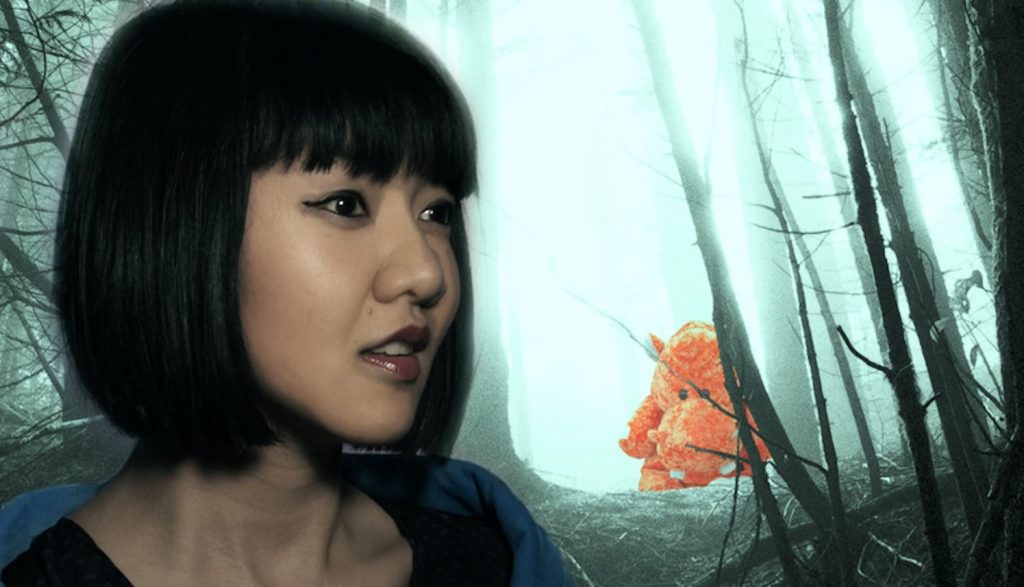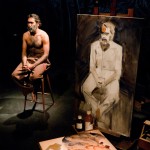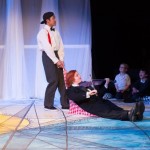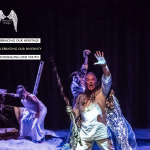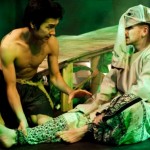A play for our time: Something There That’s Missing at Theatre503
Something There That’s Missing is a play for our time, reflecting personal cultural negotiations with love, and lots of laughter. At Theatre503.
Anh Chu’s Something There That‘s Missing was previewed for the Edinburgh Fringe Festival at Theatre503, staged by We Flew Big Theatre Company. Conceptually strong, it examines the world of “hopes and dreams” intertwined with the practical, often mundane, world of doing the actual work of realising personal ambition.
Joy moves to London to write her first play, a fantastical coming-of-age story about adventure-seeking Mei Li, who enters the supernatural Chinese metaforest. The idea of metaforest is imaginative, particularly when we get to meet an eccentric orange hippo. However, the idea needs more use of stage design and digital technologies, because it is through mixing imagined and real landscapes that Joy realises so much about her hopes to write and produce her play in London.
“Working” and “dreaming” form the central conflict for Joy Lo, Chu’s auto-biographically inspired central character who has come to London in the hope of writing and producing a theatrical success in the UK capital. What makes the character absolutely engaging is the fact that, as a Chinese-Canadian, she is forced to negotiate her plans in the face of irreconcilable cultural and personal differences. This is realised on stage comically through her Skype conversations with her practical and materialist Chinese mother back in Canada.
The play organises the action in short episodic bursts that show Joy in dialogue with her alter ego (a small Chinese doll), her mother and her friends. Alongside these more realistic scenes are the scenes which represent the dream world of the Chinese metaforest, in which a young heroine, Mei Li, is on the hunt for the Elixir of Life and the Pink River. This doubly imagined place has quasi-Chinese painted bowers, a giant panda head and a very non-Chinese orange hippo with the Chinese name of Po. The multiple locations connect the three main locations in the drama of London flat, Canadian home and hospital ward in which Joy is operated on for a brain tumour.
I remained unconvinced throughout the performance on whether the third location of the hospital ward was at all necessary to make sense of the main theme of writing and producing a play in London. I suppose it could work with more careful integration into the narrative and setting. As I saw it, director Lydia Parker does well in giving the narration a coherent shape through identifying how the company’s two other performers, Siu-See Hung and Julie Cheung-Inhin, should be differentiated from Joy’s persona, even though they are clearly her inner voice. All three actors were focused and purposeful. Parker also integrates layers of audio-visual technology, particularly the use of the great soundtrack by sound designer/composer Fisayo Karunwi.
This is a complex piece in which, I suggest, the technology is essential. So much of what I missed in the performance was connected to Anh Chu’s imaged landscapes, like the Chinese Metaforest. If a production ever had a rationale for mixed media use, thematically this production manifestly has it. Placing an image on stage “as if” it was as real as the physically present actors seemed to me to be as crucial as placing bodies in the acting space itself. Similarly, the strength of the music is vitally connected to the transitions between the live performances and the virtual projections.
Despite the gaps in getting the technology to work and, I argue, an overly complicated narrative that was at time very confusing, the intelligence of the basic story is in every sense a story for our times: of how so many of our families have migrated for economic reasons into the English-speaking world of former British colonies but, nonetheless, remain culturally attached to those non-English parts of ourselves. Paradoxically, into that diversity Anh Chu invites us to see how economic reasons are not enough to fully realise “hopes and dreams” in any culture.
Date reviewed: Sunday 21st July 2013
